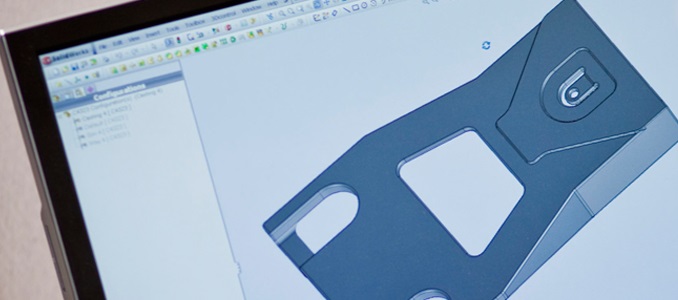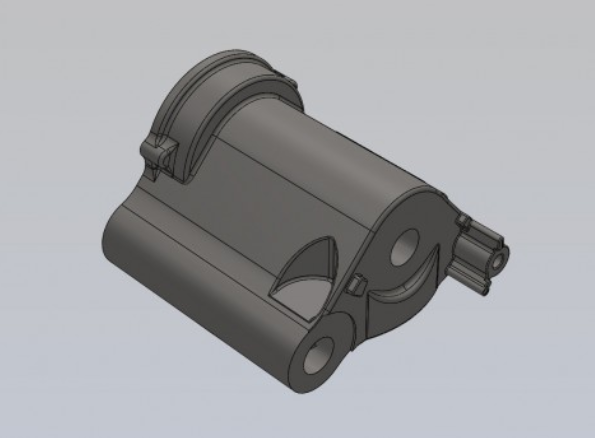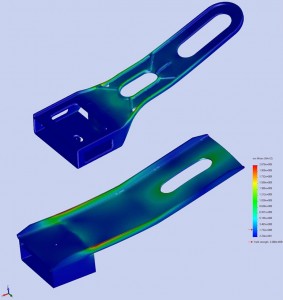Top Design Considerations When Manufacturing Castings
Design is a crucial step in the manufacturing of high-quality castings. And, in order to design successful castings, it’s necessary to use all the tools at our disposal, including sophisticated simulation software.
As a company specialising in investment castings, Dean Group know how important it is to get the design of your components right, so have a look at what to take into account before creating the final product.
Get a Comprehensive Quote
The first thing we do before developing a casting is to get a comprehensive quote from our clients. This allows us to fully understand and better fulfil the order. The designing starts with receiving the models, drawings and functional requirements from the customer.
Our team of highly qualified and experienced engineers then look at the problem at hand, suggest the best possible casting technique and offer material choices. Many of our clients may not know exactly what they want and need, but you don’t have to worry about it if this is your case. We can help by assisting with material choices and making sure the design meets the required specifications.
We offer a personalised service tailored to your needs, as we know that each project is different and unique.
Use Simulation Software
Another step of our product development process includes using cutting-edge simulation software to ensure that the function and the dimensions of the part are correct. Our 3D CAD modelling software allows us to create, edit and improve the design, so we can develop it with the best integrity and quality.
The tool also eliminates any issues, like shrinkage, before the casting is produced, as we’re able to see potential problems before manufacturing starts. The 3D modelling is ideal to optimise the weight of your casting as well, and we can easily modify the design if needed.
This will save time, effort and money in the long run, because it ensures the quality of the casting and minimises (or completely eliminates) errors and repetitions, and avoids corrections down the line.
It's important to note that we work together with you during all stages of the manufacturing process, including design. We make recommendations as we’re designing and simulating the castings and develop specific processes if the design can’t be changed.
Design Review
This process is essential because it helps us to understand whether the tool design is viable and if we can actually manufacture the casting. We also look for any opportunity to reduce costs while still maintaining the utmost quality, and make sure that the casting is commercially viable.
We also take tolerances, fit and function into account, not to mention the best materials for the part, so that we can choose the right manufacturing process and create parts that are high-quality. The parts we manufacture are covered by the CT standard ISO 8062-3:2007 and the processes are generally within the tolerance bands DCTG 3 and DCTG 10. The tolerances we can achieve depend on the processes used, on the complexity of the design and on the materials involved.
Consider Size, Weight and Material
There are many things to consider during the design stage of a casting, such as size, shape and weight. It's impossible to create a final product without having these specifications down, so we always ensure that our measurements and dimensions are correct before manufacturing the part.
For example, at our UK foundry, we can produce castings that weigh anything between 0.01kg to 100kg with our commercial grade investment casting method. This process is capable of producing parts with a size range of 10mm to 1500mm as well.
To be successful at the investment casting process, it’s crucial to have the right materials too. After all, the right metals and alloys give the castings their strength, durability, resistance to corrosion (and wear and tear), hardness, ductility, and more.
Of course, specifications like wall thickness, radii, orientation and surface texture need to be considered as well. The design process of a casting is complex, so it’s important that you choose a reliable investment casting company to create your products.
Do a Test Run
Having a sample run can help to solidify the quality of the design and ensure that the casting is functioning as it should. After confirming the design in the simulation software, producing a few parts that can then be tested for potential defects is important, as is making sure that the castings are within the tolerance range.
Test the Castings
Part of our testing process here at Dean Group is putting the designs through a Finite Element Analysis (FEA), which is useful to provide solutions to complex mechanical problems. FEA allows us to test whether the designs meet the minimum function requirements and to check loading effects on specific areas of the component.
FEA compares different processes, allows materials to be optimised and ensures parts are safety critical as well. It predicts how your castings will react in the real world when forces, heat and other effects are applied. FEA is extremely important, therefore, as it even shows whether the part is likely to break or not.
At Dean Group, we follow a full New Product Introduction (NPI) process to manufacture the castings. The NPI process is a tightly managed process to first develop samples, get them approved, move to pre-production stage and finally to production cycles.
All these steps are managed and controlled by our project managers who understand the importance of time. Most of our projects are expected to be delivered within tight time frames, something we consider right at the start of the job.
Contact us today on 0161 775 1633 if you’d like to learn more about how we design your parts or about any of our services, or send us your enquiry to sales@deangroup-int.co.uk.
Registered in England VAT No: 146307478 Company Registration No: 1062820







